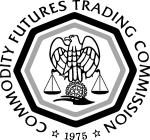
CFTC Whistleblower Alert: Be on the Lookout for Virtual Currency Fraud
The Whistleblower Office of the Commodity Futures Trading Commission (CFTC) is issuing this alert to inform members of the public about how they may make themselves eligible for both financial awards and certain protections while helping stop fraud and manipulation relating to virtual currencies.
What is a virtual currency?
The Internal Revenue Service defines a virtual currency, such as Bitcoin, as a digital representation of value that functions as a medium of exchange, a unit of account, and/or a store of value. Virtual currencies are commodities under the Commodity Exchange Act (CEA). When a virtual currency is used in a derivatives contract, or if there is fraud or manipulation involving a virtual currency traded in interstate commerce, CFTC enforcement of the CEA comes into play.
What types of misconduct should you be on the lookout for?
The CFTC has sued companies and individuals for fraudulently soliciting investments in virtual currencies. Conduct like that in the CabbageTech and My Big Coin cases is always of concern to the CFTC. Other concerns include:
- Price manipulation (like pump-and-dump schemes) involving virtual currencies and other virtual assets.
- Pre-arranged or wash trading of virtual currencies, or swaps or futures contracts based on virtual currencies.
- Virtual currency futures or option contracts or swaps traded on an unregistered domestic platform or facility.
- Certain schemes involving virtual currencies marketed to retail customers by unregistered persons, such as off-exchange leveraged, margined, or financed commodity transactions with persons, even without direct evidence of fraud or manipulation.
- Supervision failures or fraudulent conduct (e.g., creating or reporting fictitious trading) by virtual currency exchanges.
What can you do if you suspect misconduct?
You do not need to be an “insider” (like an app developer or employee) to be a whistleblower. Victims of fraud and other market participants who observe misconduct committed by others may also qualify as whistleblowers. If you see something suspicious, you can
- Complete a Form TCR (Tip, Complaint, Referral) correctly and as completely as possible
- Provide details that are specific, credible, and timely
- Include as much transactional or identifying information as possible – e.g., screenshots, social media handles or hashtags, email addresses, Bitcoin addresses, wallet information, etc.
- Attach supporting documents or files to your Form TCR, as long as they are not protected by the attorney-client privilege
- Supplement your Form TCR filing with any additional information via mail, fax, or email
About the CFTC
We are the U.S. regulator charged with ensuring the integrity of the futures & swaps markets.
About the Whistleblower Program
We will pay monetary awards to persons who voluntarily provide us with original information on a Form TCR about violations of the CEA or its rules, if that information leads to a successful CFTC enforcement action resulting in more than $1 million in monetary sanctions. The program also affords confidentiality and anti-retaliation protections.
For more information go to: www.whistleblower.gov
Whistleblower Office
Commodity Futures Trading Commission
1155 21st Street, NW
Washington, DC 20581
Hotline: 866.873.5675
This article was prepared by the Commodity Futures Trading Commission’s Whistleblower Office. The article is provided for general informational purposes only and does not provide legal or investment advice to any individual or entity. Please consult with your own legal adviser before taking any action based on this information. Please note that the above list of relevant types of misconduct is not an exhaustive list, and the IRS definition is not a statement of the Commission’s view and is instead offered as an aid to enhance public understanding of virtual currencies. See IRS Notice 2014-21, available at https://www.irs.gov/businesses/small-businesses-self-employed/virtual-currencies.
May 2019
